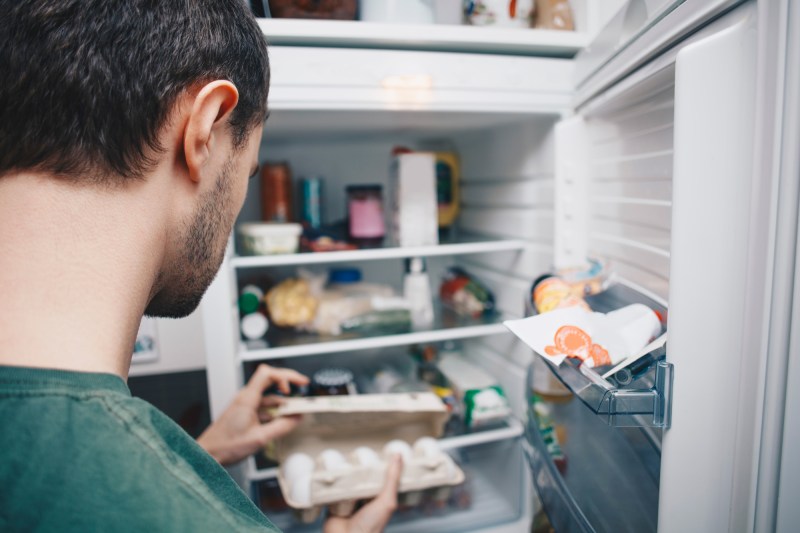Remember those carefree days a few weeks back when you would sashay off to the grocery store any time you needed some ground beef for your barbecue, some butter for your bread, or some arugula for your plate full of arugula? In the days of the COVID-19 pandemic, every trip away from home potentially exposes you to a deadly virus that you are right to fear and respect, yet you and your family still have to eat.

That means the occasional trip to the grocery store or calling on the services of food delivery companies to get your groceries for you. What the coronavirus also means is more focus than ever before on preventing food waste. And the best way to prevent food waste is to learn proper food storage techniques and to know for how long the various edibles in your home will remain safe to eat. (Also, you can probably cut down on portion size a bit without even noticing it.)
Below you’ll find the shelf, fridge, and freezer life facts on myriad types of food; While we can’t cover every single foodstuff out there, this will give you a sense of how long your eats will last, and therefore what you might want to eat first.
(One note before we dive in: Once meat has been thawed, it must be cooked and eaten, you can’t safely refreeze it. So don’t.)
Fresh Fruit

If your berries are starting to turn, freeze them! They will maintain nutrients and flavor for well over a year, and think of the smoothies. Here’s your rundown on multiple types of fruit:
| Pantry/Counter | Fridge | Freezer | |
| Apples | 7 to 12 days | 4 to 6 weeks | 1 year (but skin, core, and slice them first) |
| Bananas | 3 to 6 days | 6 to 9 days | 7 to 12 months (also consider drying them) |
| Strawberries | 1 day | 4 to 8 days | 12 months + |
| Oranges | 1 to 2 weeks | Up to a month | Not so good frozen… |
Starches

Now might be a good time to start making your own bread — refrigerated yeast can last up to half a year.
| Pantry/Counter | Fridge | Freezer | |
| Flour | 1 year | 2 years | “Best by” date + 2 years |
| Bread | 5 to 8 days | 1 to 2 weeks | Up to 3 months |
| Potatoes | 1 to 2 weeks | 3 to 4 weeks | Don’t freeze raw potatoes |
Dairy

Yes, you can freeze milk and use it later just like, well, milk.
| Pantry/Counter | Fridge | Freezer | |
| Milk | Absolutely not. | 3 to 5 weeks | 3 to 6 months |
| Butter | 2 to 4 days | 6 to 9 months | 12 months |
| Ice Cream | A few minutes | Fridge? Dude, no. | Up to 3 months |
Meats

While many meats last many months in the freezer, be sure to look for signs of freezer burn that might indicate partial thawing and refreezing, and know that nutrients and flavor degrade over time. For the record, we’re only talking about raw meat.
| Fridge | Freezer | |
| Ground Beef |
2 to 5 days | 4 to 6 months |
| Chicken | 2 to 3 days (longer if you bought very fresh) |
Up to 6 months |
| Pork | 3 to 6 days | 6 to 9 months |
Liquor

It’s adjacent to a foodstuff, right?
| Pantry | Fridge | Freezer | |
| Whiskey | You are good |  |
 |
| Gin | Also good |  |
 |
| Vodka | Yep |  |
 |



